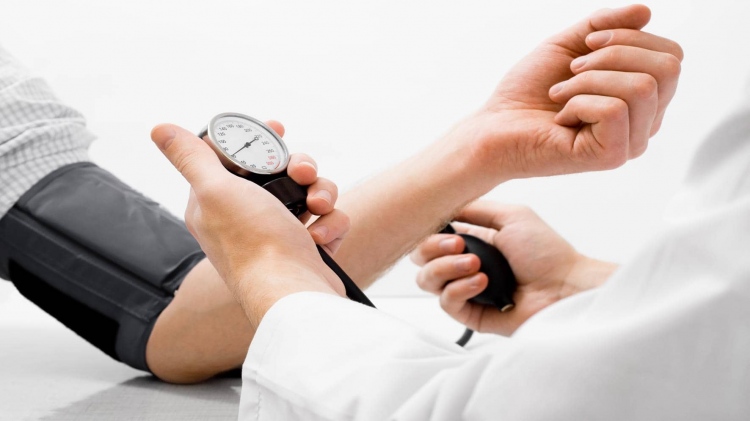Hypertension
20 May 2016
13:13

What is hypertension
It is arterial blood pressure that remains elevated for a long period of time. Arterial blood pressure is the pressure exerted by circulating blood upon the walls of blood vessels.
What risks are associated with hypertension
Hypertension can cause:
- Heart conditions
- Stroke
- Renal failure
How is hypertension diagnosed
Hypertension is detected by checking whether the blood pressure remains high over a long period of time, without being related to external stress factors.
Blood pressure measurement is a simple and painless procedure that provides useful information about the heart and the condition of the blood vessels. The physician measures the systolic and diastolic pressure using the heart rate. Both are very important measurements:
- Systolic pressure is the maximum pressure exerted on the arteries, which occurs near the beginning of the cardiac cycle
- Diastolic pressure is the minimum pressure, which occurs when the heart is at rest
The difference between the systolic and the diastolic pressure is known as the pulse pressure. The average pressure throughout the cardiac cycle is known as the mean arterial pressure.
For an individual to be diagnosed with hypertension, the physician must monitor their pressure over a long period of time, usually 24 hours. This is achieved through ambulatory blood pressure monitoring.
An electronic device is adjusted to the individual's arm and remains there for 24 hours. In this time, the device receives and records regular pressure readings during usual daily activities or sleep.
From the blood pressure fluctuations recorded throughout the day and night, the physician will determine whether the individual suffers from hypertension, the type of hypertension and the appropriate pharmaceutical treatment.
How is hypertension treated
Blood pressure may improve significantly by adjusting an individuals daily routine:
- Follow a healthy nutrition plan, low in salt
- Exercise
- Maintain a healthy weight
- Limit alcohol intake
- Quit smoking
- Reduce stress
- Sun exposure